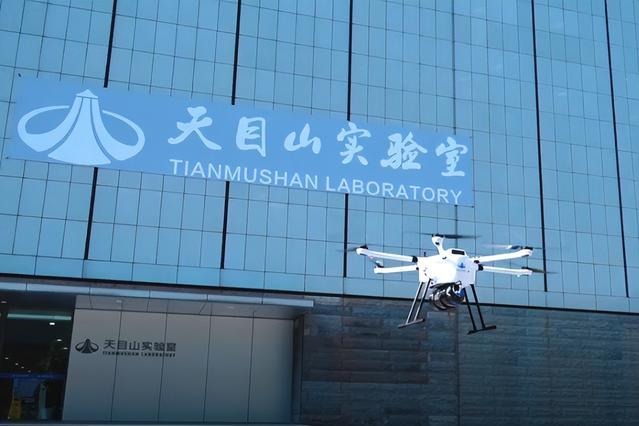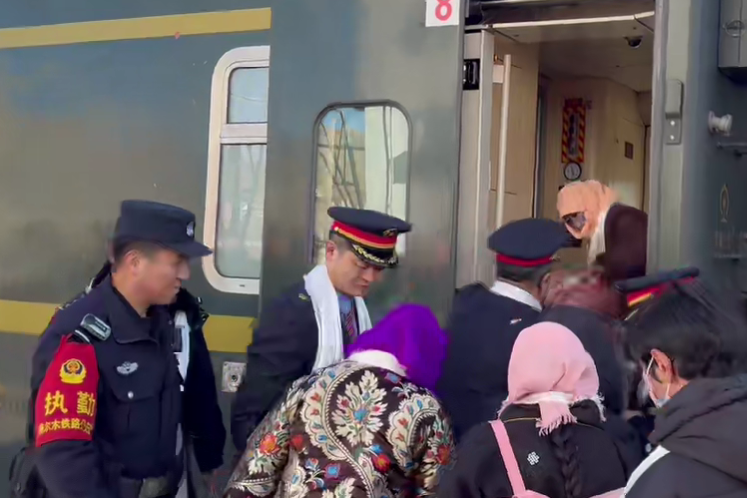Asia-Pacific gets creative to adapt to 'new normal'
Services industries turning to online model to lift fortunes amid pandemic

HONG KONG-The ongoing COVID-19 pandemic has dealt a heavy blow to service industries in Asia-Pacific countries, with sectors such as tourism, catering and retail hardest hit.
Apart from providing direct financial subsidies to help these sectors survive, governments in some countries have been proactively guiding local enterprises and labor forces to develop new business approaches and skill shifts to adapt to the "new normal" of this difficult time.
Future economy
Song Chao, who runs two famous Chinese restaurant brands Xie Lao Song and Xiao Wei Yang in Singapore, is one of the entrepreneurs who responded actively to Singaporean Prime Minister Lee Hsien Loong's call to grasp the opportunities in the changes brought about by the pandemic.
During the government's "circuit breaker" measures, imposed to contain the spread of the COVID-19 since April 7, his company closed several restaurants, leaving only one hotpot restaurant and one Chinese restaurant open for takeouts and deliveries.
His restaurants have mainly carried out delivery services through websites, WeChat and Star Taster delivery platforms, and personal social networks of employees.
These restaurants have also changed the variety of dishes to suit the demand for takeouts, including highlighting barbecue features and adding bao, a type of steamed, filled bun, to the menu. "Bao is popular and convenient when people are staying at home," he said.
Song said on the morning of May 1, his Chinese restaurant roasted 26 ducks and he himself went out to deliver food. He saw how the circuit breaker measures are changing Singaporeans' living habits, and even if with the measures ending on June 19, he believes takeout and delivery services will not shrink at least in the short term.
The Singaporean government has been encouraging local businesses in their digital transformation, especially in the wake of the COVID-19 outbreak.
Enterprise Singapore, a government agency championing enterprise development, launched the "E-Commerce Booster Package" in April to support small and medium-sized enterprises in the retail sector, who have little or no e-commerce experience, to start their business transformation by selling online.
This package was expanded in May to support SME retailers in strengthening their digital marketing capabilities for e-commerce. It provides one-time 90 percent support for digital marketing advisory services for three months, and support for manpower to build in-house capabilities needed to set the foundation for sustained digital marketing efforts.
The package is in line with the "Stay Healthy, Go Digital" government initiative to provide resources for businesses to manage the COVID-19 situation. Going digital targets business groups to strengthen their digital capabilities and access global markets via digital channels.
Rural job plan
"Without any cash or work, how will I survive? That was my first thought after reaching my village," said Ram Kewat, a 60-year-old daily wage laborer who used to work in Delhi.
It was a journey of 450 kilometers from the capital to his village on the outskirts of Jhansi, one of Uttar Pradesh's southernmost districts. Kewat covered that distance on foot in just five days, walking 90 km a day on average to reach his village on March 29.
After the government announced a three-week nationwide lockdown on March 24 to prevent the spread of COVID-19, Kewat knew he would be out of work and food, and decided to walk to his village since there was no other mode of transport available to him.
Kewat is one of the about 100 million migrant workers in India, or 20 percent of the country's total workforce, who have lost their livelihood during the lockdown.
Mostly, daily wage earners such as security guards, delivery people, cleaners and garbage collectors have had no other choice but to return home with their workplaces shutting down.
But there is hope for Kewat to earn a better living even in his hometown. On June 20, Indian Prime Minister Narendra Modi launched the "Garib Kalyan Rojgar Abhiyaan" (GKRA or Poor Welfare Employment Campaign) worth 50,000 crore Indian rupees ($6.7 billion), a rural job plan for the welfare of migrant laborers who had returned home from major cities, covering 116 districts including Kewat's hometown of Uttar Pradesh.
A list of 25 jobs and activities, such as construction of highways, village council buildings and farm ponds, as well as internet setup and laying gas pipelines, have been targeted as priority projects to ensure employment for these migrant laborers.
Modi said under the campaign, skill mapping of rural migrant laborers is being carried out to help them work closer to their homes, focusing on building a durable rural infrastructure and providing modern facilities like internet in the villages.
Fill the void
For highly international cities like Bangkok and tourism hot spots like Pattaya and Phuket, the economic devastation is nearly total as Thailand has received zero international guests because of restrictions on inbound flights from April to June.
"The tourism sector of Thailand is in the plight of oversupply due to the absence of foreign tourists. To make it survive and fill the void of the foreign market, the cabinet has approved stimulus packages worth 22.4 billion baht ($716.8 million) to stimulate about two million domestic trips from July to October," said Yuthasak Supaporn, governor of the Tourism Authority of Thailand.
The packages include subsidies on accommodation, transport, food and attractions. Domestic travelers stand to receive a subsidy amounting to 20 billion baht, including a 40 percent discount on 5 million hotel room nights, up to a value of 3,000 baht a night, as well as up to 3,000 baht on meals and other amenities. The government will also discount air or bus tickets by 40 percent, up to a limit of 1,000 baht.
"In the past we offered Thai people cash giveaways. As a result, they saved the money instead of spending on trips. This time we'd rather give them discount coupons to stimulate spending," the governor said.
A package worth 2.4 billion baht will fund holiday travel for 1.2 million health volunteers and officials who will use the services of tour companies, which is expected to help 13,000 tour firms. "All the measures are aimed to reinvigorate domestic tourism, to get the economy moving again," said Yuthatsak.
The country is also mulling reopening its doors to international tourists via travel bubbles. Taweesin Wisanuyothin, spokesman for the government's Center for COVID-19 Situation Administration, said the travel bubble idea had not been finalized but it was clear it would not allow hundreds of thousands of foreigners to visit per year.
"The tourism sector will be reset in the pandemic. We are turning away from mass tourism. Targeting wealthy groups and balancing the domestic and international markets will be the trend," he said.
Moving online
Like Singapore's Song Chao, many young entrepreneurs have quickly adapted to the new situation and found achievement in becoming cloud servers.
Malaysia's Angie Ng runs a company with businesses spanning from property development to tourism. She is also the president of Malaysia Inbound Chinese Association, a major industry player in receiving Chinese tourists to Malaysia.
After business slowed down and tourism came to a halt due to the COVID-19 outbreak, Ng soon found a new way to promote Malaysia's tourism-livestreaming.
Since April, she has broadcast a number of videos on Malaysia's tourist attractions, including urban food streets and rural durian farms, introducing Malaysia's culture on Chinese social media platforms like TikTok and WeChat.
Ng said she was inspired when being asked by her friends in China about the pandemic in Malaysia and if it would be safe to come to Malaysia for a holiday.
"I have time now, so I must do something to prevent Malaysia's tourism market from cooling down," she said. "Livestreaming is the best way I can think of, (via which) people could actually see the food and the streets."
Ng's viewers have grown from several thousand in the earlier broadcasts to more than 10,000 now. She is planning more livestreams from some tropical islands and historic cities of Penang and Malacca, among others. "We want to keep the market warm and not to let the market cool down and hopefully when all these borders reopen, all the tourists will come back," she said.
Like Ng, Nishith Shah, who founded the India China Academy in Mumbai in 2013 to bridge the cultural gap between India and China, has also enjoyed a new way of doing business after moving his Mandarin language courses online.
"We have designed exercises, activities and learning materials to suit online teaching. We are using various digital platforms like Zoom, WeChat and DingTalk."
He even found his courses started to attract a wider range of students. Previously, his students mainly came from Mumbai. In a webinar on an introduction to Mandarin he was "pleasantly surprised" to see students from Kolkata, Surat, Delhi and remote parts of Maharashtra.
"A wider range of students can now access ICA's educational programs," said Shah, who is devoted to connecting China and India by eliminating communication and cultural barriers between the two ancient civilizations.
Xinhua

Today's Top News
- China remembers victims of Nanjing Massacre, 88 years on
- New plan will be a road map for a stronger future
- Taiwan's character of the year a vote against confrontation
- Strengthened resilience key for economy
- Video sheds new light on Japan's wartime atrocities
- Xi: World yearns for peace, trust more than ever






























